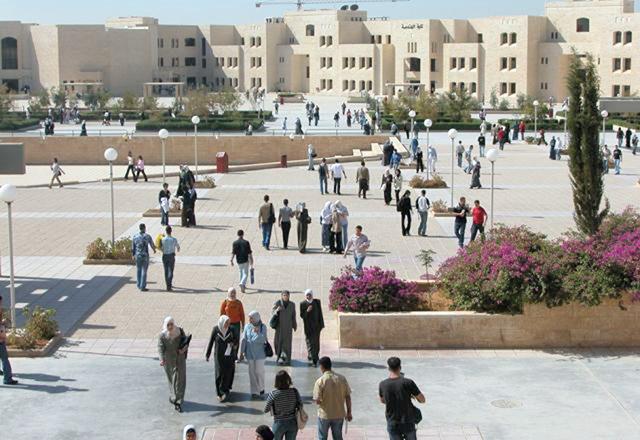You are here
Majority of region’s youth believe religious values holding Arab countries back — survey
By JT - May 01,2019 - Last updated at May 01,2019
AMMAN — The majority of young Arabs say religion plays too large a role in the Middle East and believe that religious institutions should be reformed, according to the 11th annual ASDA’A Burson Cohn & Wolfe (BCW) Arab Youth Survey released on Tuesday.
The survey findings were based on 3,300 face-to-face interviews conducted between January 6 and January 29 with young Arab nationals aged 18 to 24 in 15 MENA countries, according to a statement sent to The Jordan Times. The survey also included a 50:50 gender split.
The survey was the largest independent study of its kind into the region’s largest demographic (65 per cent of the Arab population is under the age of 30), according to the statement, which added that that 66 per cent of young Arabs believe religion plays too big a role in the region. The figure represents a jump of 16 percentage points since 2015.
Furthermore, 79 per cent of respondents said that the region’s religious institutions needed reform, and half of those surveyed said religious values were holding the region back.
The 2019 survey also revealed that youth across the Arab world want to see an end to regional conflicts, such as the Syrian civil war, with 73 per cent saying the conflict should end regardless of whether Bashar Assad stays in power or not.
Young Arabs also have high expectations for their governments to deliver on economic issues with 78 per cent saying it is their government’s responsibility to provide jobs for citizens, 78 per cent saying they expect energy subsidies and 60 per cent saying their government must provide housing for all.
However, in the eyes of many young Arabs, their governments are currently falling short, with 65 per cent saying their country was not doing enough to help young families, according to the statement.
The survey aims to provide “important context for business leaders and policymakers as they work to understand and connect with the next generation of leaders”, BCW CEO Donna Imperato said in the statement.
The 2019 survey also explored how young Arabs perceive other countries in the region and outside the Middle East. For the eighth year in a row, the UAE was seen as the top country to live in and for other countries to emulate.
More than nine in 10 young Arabs also said the UAE was an ally of their country. Nearly as many young Arabs viewed Egypt (84 per cent) and Saudi Arabia (80 per cent) as allies to their country.
Meanwhile, a strong majority said the US was an adversary (59 per cent) rather than an ally (41 per cent). Views of the US among Arab youth were nearly as polarising as views on Iran (67 per cent adversary vs 32 per cent ally), and when asked whether the US or Russia was a stronger ally of their country, young Arabs were just as likely to select Russia (37 per cent) as the US (38 per cent), with another 25 per cent saying that neither of the two global powers were an ally.
For the first time in the survey’s history, Arab youth’s attitudes towards issues like drug use and mental health were explored.
More than 57 per cent of young Arabs said that drug usage among young people in their country was on the rise, and 57 per cent said that drugs were easy to obtain in their country.
When asked about mental health issues, 54 per cent said accessing quality medical care for mental health was difficult in their country.
Half of Arab youth also said there was a stigma around seeking medical care for mental health issues, and nearly one in three said they know someone suffering from mental health issues.
“This year’s findings show that youth are looking at their governments to reshuffle their priorities, especially when it comes to the role played by religion and seemingly endless conflicts — and they want to see change,” ASDA’A BCW President Sunil John said about the findings.
“Young Arabs who have grown up against a backdrop of extremism and geopolitical conflicts are tired of the region being defined by war and conflict,” John continued. “They say they want their leaders to focus on the economy and providing better services such as quality education and healthcare, and respondents, particularly in north Africa and the Levant, expect their governments to do much more to address these core concerns.”
Related Articles
AMMAN — Optimism has plunged among young Arabs across much of the region with a widening divide over hopes for the future between those livi
AMMAN — Jordanian youth are more optimistic about their future, according to a recent survey.The results of 13th annual ASDA’A BCW Arab Yout
WASHINGTON, DC — As 30 per cent of 18- to 24-year-olds are jobless in the Middle East and North Africa, marking the highest unemployment rat











